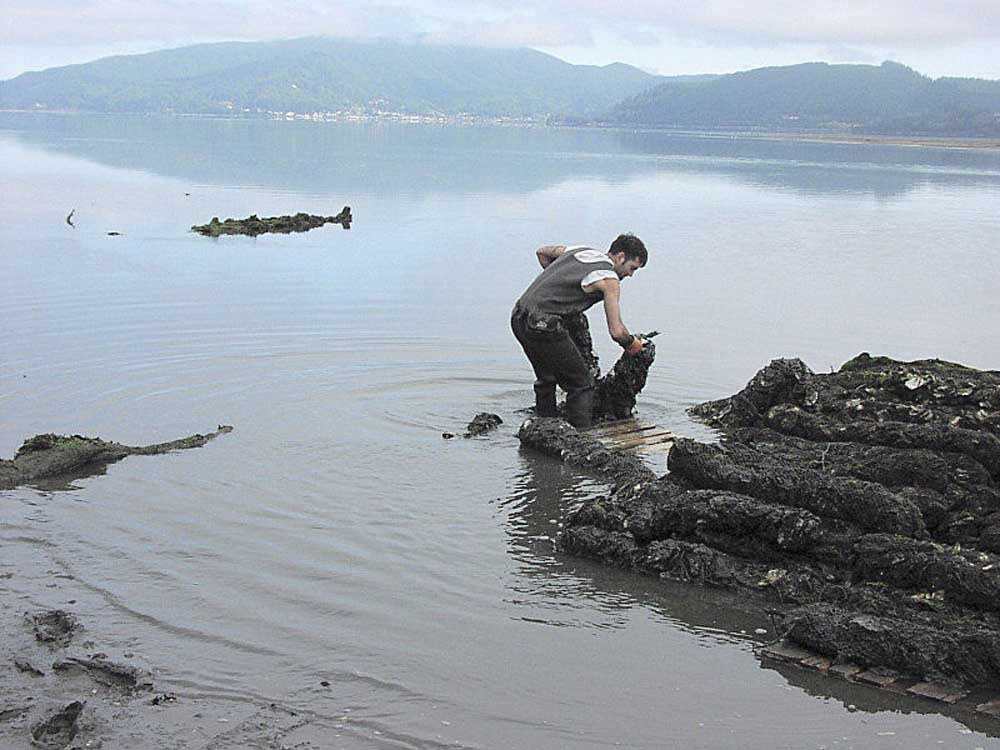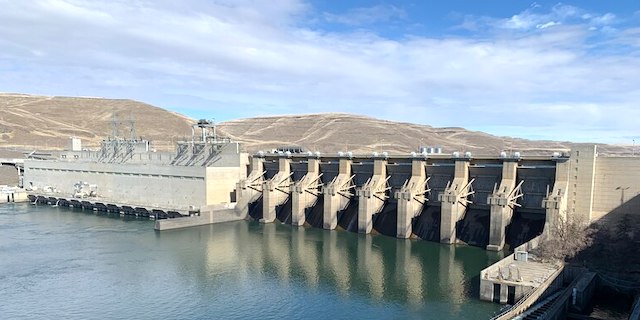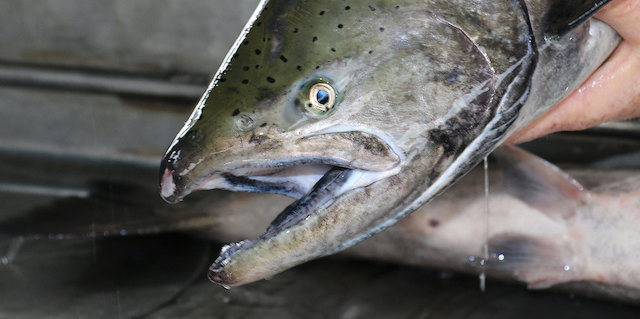Judge dismisses oyster company’s lawsuit over dairy pollution
Published 5:15 pm Tuesday, May 28, 2019

- Bags of oysters are pulled from Tillamook Bay before they’re graded and packaged by a worker with the Hayes Oyster Co.
A lawsuit alleging insufficient regulation of dairy pollution in Oregon’s Tillamook Bay cannot proceed for procedural and jurisdictional reasons, according to a state judge.
However, the oyster company that filed the complaint against the state Department of Environmental Quality plans to appeal that decision.
Two years ago, the Hayes Oyster Co. accused the DEQ of enacting “total maximum daily load” standards for fecal coliform bacteria that were too lenient, effectively allowing dairy pollution to shut down or restrict oyster harvest on 600 acres of plats in the bay.
Hayes contended that DEQ wrongly assumed that “confined animal feeding operation” permits for dairies prohibited all wastewater discharge even though such effluent continued to enter waterways, amounting to a “pollution easement” across the Tillamook Bay.
Last year, Tillamook County Circuit Court Judge Mari Garric Trevino found that DEQ hadn’t properly finalized the TMDL order in 2001, which at the time allowed Hayes to continue pursuing litigation against the agency.
In her most recent opinion, however, Trevino has determined that she doesn’t have an “independent basis for jurisdiction” over the case due to how agency actions must be challenged under Oregon’s administrative procedures law.
“The fact that other relief may not be available to plaintiff or that his property rights are impacted does not affect this restriction,” the judge said.
The judge also ruled that Hayes doesn’t have the legal standing to challenge DEQ’s regulation and that the case was untimely filed due to a 10-year statute of limitations, since the oyster company would have been aware of the TMDL’s effect on oyster harvests since the early 2000s.
“The court finds that a reasonable person in plaintiff’s situation would perceive that it had been injured by the implementation of the TMDL and that the drafter and approving agency for the TMDL, defendant DEQ, was responsible for this injury,” Trevino said.
The DEQ’s inadequate regulation has harmed Hayes as well as people who recreationally harvest clams and crabs from the bay, said Thomas Benke, the attorney for Hayes, in an email.
“Hayes is disappointed in the court’s ruling in that it effectively insulates the department from any accountability for its failure to establish a TMDL that is intended to achieve the shellfish harvesting water quality standard in Tillamook Bay,” he said.






